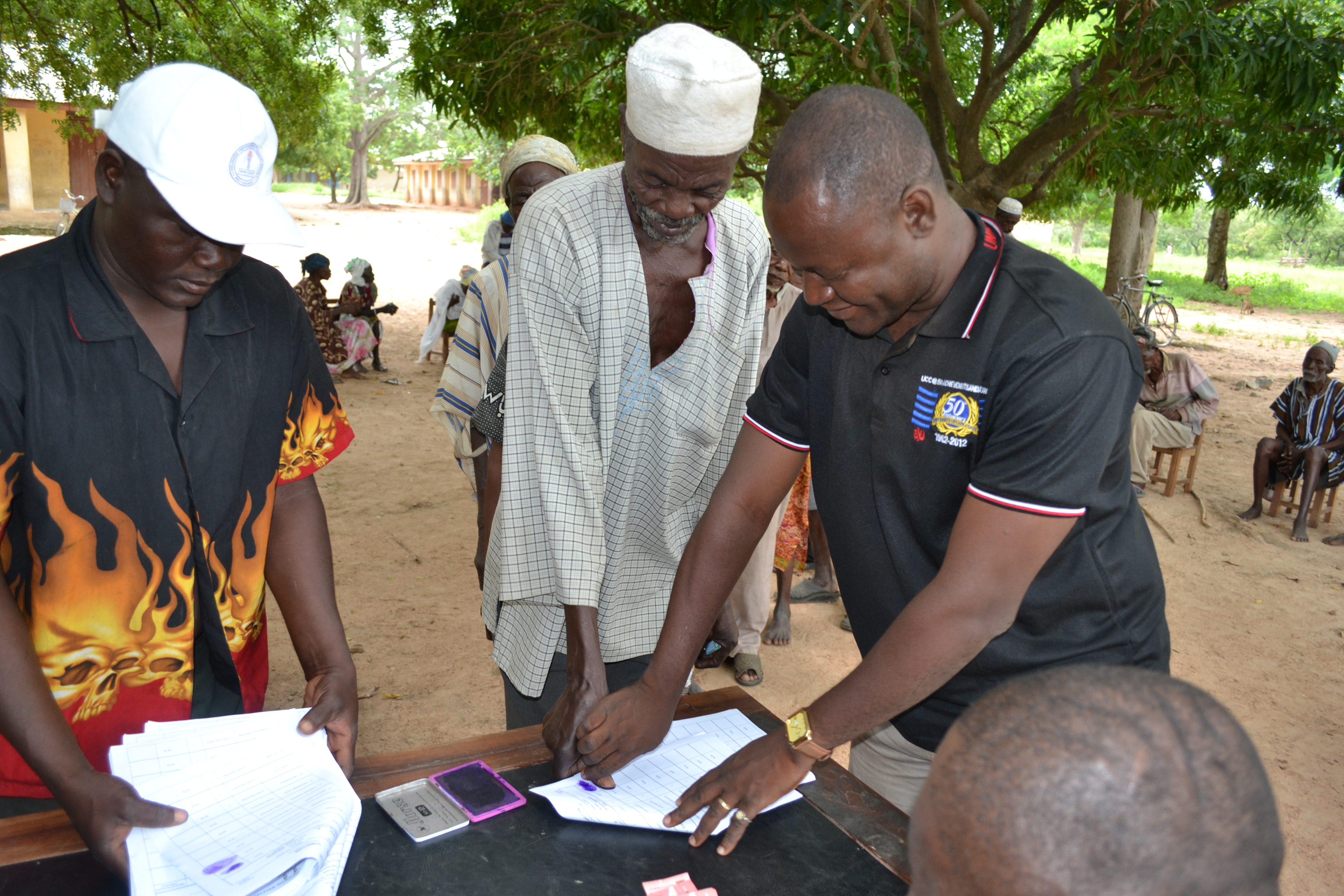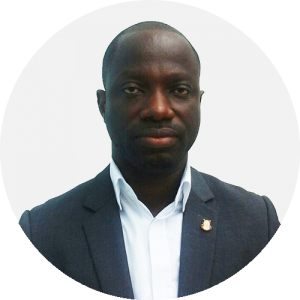49th Cycle LEAP Payment scheduled for 31st July– 4th August, 2017
In 2008, Ghana launched its flagship Social Protection Programme, the Livelihood Empowerment Against Poverty (LEAP). LEAP is a cash transfer programme for the poorest families in Ghana to reduce poverty and enhance long term human development. In this 49th cycle LEAP payment scheduled for 31st July– 4th August, 2017, a total number of 213,044 beneficiary households in all the 216 districts of the country will be paid their LEAP cash grants.

What is the goal of the LEAP Programme.
The goal of the LEAP Programme is to reduce poverty by increasing consumption and promoting access to services and opportunities among the extremely poor and vulnerable.
Complimentary services
All members of LEAP households are afforded with some complimentary services aimed at further reducing their financial burden and elevating them from a status of marginalisation. The LEAP Management Secretariat (LMS) believes that the cash grant alone cannot address extreme poverty rather there is the need to adopt a holistic approach, which involves coordination with other Governmental and non-Governmental pro poor organizations. To facilitate the complimentary health care services afforded to members of LEAP households, the LEAP Management Secretariat (LMS) in partnership with National Health Insurance Authority (NHIA) has embarked on a nationwide free NHIS registration exercise. To date over 90,000 LEAP household members have been registered free-of- charge onto the National Health Insurance Scheme (NHIS).The free NHIS registration factored into the LEAP Programme ensures that members of the LEAP households receive better healthcare and another chance to live healthier and more fulfilled lives
Impact of the LEAP Programme on beneficiaries
The LEAP Programme is making impact on the lives of its target group. An independent research conducted by Centre for Democratic Development (CDD), a leading civil society organization, between 2014 and 2015, indicates that LEAP contributed to 12% increase in school enrollment of children of school going age. Other findings from the research include: children in LEAP households are more motivated to attend school; Improved access to health care through NHIS for LEAP beneficiaries, 65% of LEAP households reported an increase in food security for their children, 62% of beneficiaries are able to purchase fertilizers and 63% of LEAP households have invested their accumulated grants savings into economic activities in their communities.
The findings from the CDD research also corroborated the 2012 findings from the impact assessment conducted by ISSER and North Carolina University of USA in 2012.
The LEAP Programme was also rated an ‘A+’ by the United Kingdom’s Department for International Development (DFID) in their 2016 annual review. DfID is one of the Development Partners that is supporting the Programme in terms of grants and Non-Grants Assistance. By this rating, the programme is deemed to be performing very well toward the achievement of its overall objective
Key actions that the LEAP Programme is carrying out during this month especially with regards to the payments?
- The LEAP Programme will pay 213,044 beneficiary households in all the 216 districts in the country from 31st July – 4th August, 2017 Representatives of the ministry and other Key institutions will be monitoring the payment process. The monitoring exercise is conducted as a means of assessing the impact and progress of the LEAP payment, as well as the services of the Payments Service Providers; this is done to identify challenges and problems which are addressed in subsequent payments.
- MoGCSP through the LEAP programme also aims at improving beneficiary knowledge on Preventive Health Practices, placing emphasis on healthy eating habits. Studies have shown a correlation between good eating habits, a healthy body and a longer life span. In line with this, the MoGCSP has issued a directive to include Nutritionists/health workers to the beneficiary sensitization process before payments is conducted
- Again in preparation for the upcoming payment cycle, DSWOs across the nation were taken through a series of training on how to set up a pay points in their various district.DSWOs were encouraged to make sure they had all pay point satisfying the following criteria;neat/decent environment, structure with roof,table for PFIs to conduct cash out, sitting arrangement for beneficiaries and anything required to make the place convenient. Among other issues that were discussed during the training included how to mobilize beneficiaries, mode of payments, payment service providers and the roles of MMDAs in the payment Process.











 Achaligabe Colson Akanbasiam (Mr) is the Head of Case Management of the LEAP programme. He has over 15 years working experience in both governmental and non-governmental organisations. He holds a Master of Philosophy Degree in Gender and Development (Norway) and a Bachelor of Arts Degree in Sociology with Political Science (Ghana).
Achaligabe Colson Akanbasiam (Mr) is the Head of Case Management of the LEAP programme. He has over 15 years working experience in both governmental and non-governmental organisations. He holds a Master of Philosophy Degree in Gender and Development (Norway) and a Bachelor of Arts Degree in Sociology with Political Science (Ghana). Alhaji Lateef Mamudu is a senior civil servant and has Higher National Diploma (HND) in Accounting from Tamale Polytechnic and a Bachelors Degree in Accounting from Ghana Institute Of Management And Public Administration (GIMPA).
Alhaji Lateef Mamudu is a senior civil servant and has Higher National Diploma (HND) in Accounting from Tamale Polytechnic and a Bachelors Degree in Accounting from Ghana Institute Of Management And Public Administration (GIMPA). Thomas Boateng Quaison holds a Bachelor of Arts Degree in Political Science and Information Studies from University of Ghana. He has undergone training on Monitoring and Evaluation (M&E) including Evaluation of Social Programmes at the University of Cape Town, South Africa. He is currently pursuing a Masters Degree in Public Administration (MPA) at the University of Ghana Business School and Project Management Professionals (PMP) at the Ghana Institute of Management and Public Administration.
Thomas Boateng Quaison holds a Bachelor of Arts Degree in Political Science and Information Studies from University of Ghana. He has undergone training on Monitoring and Evaluation (M&E) including Evaluation of Social Programmes at the University of Cape Town, South Africa. He is currently pursuing a Masters Degree in Public Administration (MPA) at the University of Ghana Business School and Project Management Professionals (PMP) at the Ghana Institute of Management and Public Administration. Richard Azina Nartey joined the LEAP team in September 2013 as Assistant to the Head of Operations Unit, having previously worked as a Programme Officer on the National Social Protection Strategy at the Ministry of Employment and Social Welfare and the Ministry of Gender, Children and Social Protection. Richard worked with Youth and Women Empowerment (CSO) as Youth Coordinator, Project Manager and Executive Director.
Richard Azina Nartey joined the LEAP team in September 2013 as Assistant to the Head of Operations Unit, having previously worked as a Programme Officer on the National Social Protection Strategy at the Ministry of Employment and Social Welfare and the Ministry of Gender, Children and Social Protection. Richard worked with Youth and Women Empowerment (CSO) as Youth Coordinator, Project Manager and Executive Director. Felix Kwaku Logah Felix Kwaku Logah is the head of operations for the LEAP Programme. He is the lead in planning and implementing LEAP Programme design parameters. He is responsible for targeting and enrollment activities. He is a professional Social Worker who holds Masters degree in Development Studies, Bachelor in Social Work and Clinical Psychology, Certificate in Public Heath all from University of Ghana, Legon. Trained in Designing and Implementing Social Cash Transfer in the Economic and Policy Research Institute, Cape Town -South Africa, Trained in Development Evaluation (IPDET) in Carleton University, Ottawa-Canada.
Felix Kwaku Logah Felix Kwaku Logah is the head of operations for the LEAP Programme. He is the lead in planning and implementing LEAP Programme design parameters. He is responsible for targeting and enrollment activities. He is a professional Social Worker who holds Masters degree in Development Studies, Bachelor in Social Work and Clinical Psychology, Certificate in Public Heath all from University of Ghana, Legon. Trained in Designing and Implementing Social Cash Transfer in the Economic and Policy Research Institute, Cape Town -South Africa, Trained in Development Evaluation (IPDET) in Carleton University, Ottawa-Canada. Dzigbordi Kofi Agbekpornu is the National LEAP Manager and is responsible for leading the team at LEAP Management Secretariat to achieve the Programme objectives. He also coordinates and manages programme activities across the country at regional, district and community levels.
Dzigbordi Kofi Agbekpornu is the National LEAP Manager and is responsible for leading the team at LEAP Management Secretariat to achieve the Programme objectives. He also coordinates and manages programme activities across the country at regional, district and community levels. Jeremiah Yanney is a City & Guilds of London Institute Certificate & Diploma holder in Microprocessors and Microcomputer Technology, Microsoft A+, Networking+ and (MCP) Microsoft Certified Professional, (MCSE) Microsoft Certified Systems Engineer, FSK systems. He has specialized skills in Hardware, Networking, Systems administration, MIS consultancy, training, and a Certificate in Social protection (CSPS, University of Ghana).
Jeremiah Yanney is a City & Guilds of London Institute Certificate & Diploma holder in Microprocessors and Microcomputer Technology, Microsoft A+, Networking+ and (MCP) Microsoft Certified Professional, (MCSE) Microsoft Certified Systems Engineer, FSK systems. He has specialized skills in Hardware, Networking, Systems administration, MIS consultancy, training, and a Certificate in Social protection (CSPS, University of Ghana).
Leave a Reply
Want to join the discussion?Feel free to contribute!